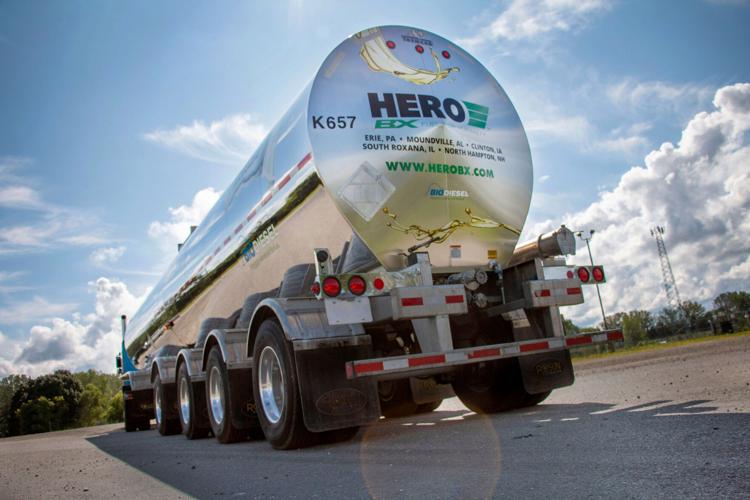Erie biodiesel plant hopes to raise profile of alternative energy in Pennsylvania

The Erie-based Hero BX converts discarded vegetable oil, animal fat and restaurant grease into 50 million gallons of renewable biodiesel every year.
(The Center Square) – There’s a plant on Lake Erie turning used vegetable oil, restaurant grease and animal fat into 50 million gallons of biodiesel – a low-profile, renewable energy source – each year.
Hero BX repeats the process across its five facilities nationwide, blending the discarded oils into 110 million gallons of biodiesel used for transportation and home heating, reducing greenhouse gas emissions all along the way.
“I call it the shining star of the Great Lakes,” said Pennsylvania state Rep. Pat Harkins, D-Erie. “That’s what I tell everybody.”
So why do so few people know about it? Hero BX President Chris Peterson can’t say for sure. Maybe the industry just suffers from a lack of publicity, he said, but he’d like to change that.
“A lot of people aren’t aware that it’s out there and all the ways it’s possible to use,” he said.
Biodiesel has already made inroads in the transportation sector, where federal mandates require manufacturers to incorporate 3 percent of the energy source into traditional fuel oil. Congress also reinstated the Biodiesel Tax Credit in December, guaranteeing manufacturers a $1 per gallon income tax credit for pure or renewable diesel produced or used in the blending process.
But there’s nothing at the state level that supports the sector’s growth, Peterson said. This, despite an appetite from Gov. Tom Wolf’s administration for cleaner energy sources and reducing the state’s economic dependence on fossil fuels.
That’s where House Bill 1690 could fill the void. Harkins introduced the legislation as a way to help grow the biodiesel industry – and Hero BX – in Pennsylvania, though he admits generating interest in it hasn’t been easy.
“There’s not been outward resistance,” he said. “There just hasn’t been a lot of interest. It’s on the back burner with everything going on.”
The bill would mandate biodiesel content in residential and commercial heating fuels. Harkins said even though some lawmakers may be critical of industry subsidies, the feedback he’s received so far has been positive.
Besides, expanding the industry with legislative support could create high-paying jobs and help the state transition to clean energy, he said.
It’s unclear if the Republican majorities in the House and Senate – long committed to preserving the 300,000 jobs sustained by natural gas production – would be eager to move the proposal.
The House Energy and Environmental Resources Committee, where Harkins’s bill has languished for nearly 18 months, has focused its recent public hearings on derailing Wolf’s executive order to join the Regional Greenhouse Gas Initiative (RGGI) in 2022.
The 10-state coalition charges power producers for the pollution they emit and then reinvests the money collected into green energy technologies. Legislative Republicans and some Democrats said the governor’s order violates the state constitution by forcing a carbon tax on residents. It also threatens one of the state’s most lucrative industries and could prompt an exodus of natural gas producers into neighboring non-RGGI states, like Ohio and West Virginia, critics argue.
Proponents of RGGI say it would create more economic opportunities for residents than currently provided by natural gas and coal, bringing in 27,000 jobs and saving 223 million tons of carbon pollution.
Peterson said he’s not a fan of RGGI or other cap and trade-style programs, but admits that the policies would help his business grow.
“Ultimately if there’s a way to get more green fuel content into the mainstream, that’s something that our company is in favor of,” he said.

